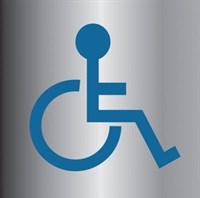Should the new National Disability Policy be approved by parliament, SA businesses will have to become far more innovative and proactive in their approach to employing people with disabilities.
The new policy, which is scheduled to be released towards the end of this year, is focused on ensuring the mainstreaming of persons with disabilities in all walks of life, including in the workforce.
The policy has been aligned to the key outcomes contained in the Medium Term Strategic Framework (MTSF) 2014 - 2019, such as: the need for decent employment through inclusive economic growth; quality basic education; a skilled and capable workforce to support an inclusive growth path; social protection; and nation building and social cohesion.
According to Dr Jerry Gule, Chairman of the non-profit employer organisation, SAE4D (South African Employers for Disability), the drafters of the new National Disability Policy have proposed that it incorporates penalties for those who should be taking active steps to drive equality of access and opportunity for people with disabilities, but don't.
Prove that they tried
"It's no longer going to be a case of employers shrugging their shoulders and claiming that they cannot find suitably qualified people with disabilities. If the draft policy is accepted in its current form, companies will have to prove that they tried," he said.
"They will also have to prove that they made a real effort to accommodate people with disabilities within their organisations."
This will pose an interesting challenge for Human Resource professionals and management teams who have to prioritise the recruitment of people with disabilities in their recruitment plans. Furthermore, organisations will have to ensure that they fully integrate people with disabilities into the workforce.
Dr Gule predicts that one of the most strenuous objections to the proposed policy will be the commonly held assumption that the current education system is simply not producing sufficient numbers of skilled people with disabilities to meet business needs.
"However, that is pure speculation. There is no solid data available about how many people with disabilities are coming on to the job market, let alone what their level of skills is.
"What we do know is that far too few corporates are making a conscious effort to locate and recruit people with disabilities. Perhaps one of the problems is that corporates don't know how to find people with disabilities, while people with disabilities don't know how to make contact with potential employers who want to recruit them. Or, even if they do, they encounter insurmountable barriers."
Providing bursaries and scholarships
Dr Gule also suggests that businesses should also play a role in strengthening and broadening the pipeline of potential employees with disabilities by, for example, providing bursaries and scholarships to promising young people with disabilities while they are still in school.
In addition, in order to help bridge the divide between employers and potential employees with disabilities, SAE4D offers people with disabilities the opportunity to make their CVs available directly to SAE4D member companies. The service is free for potential employees with disabilities.
"However, once people with disabilities are employed in an organisation, employers will have to make a conscious effort to ensure they are afforded the same opportunities as their peers. For example, they will have to train line managers to be sensitive and handle people with disability appropriately. They will also have to educate and sensitise the workforce as a whole about how to work with colleagues who have a disability," Dr Gule concluded.








































